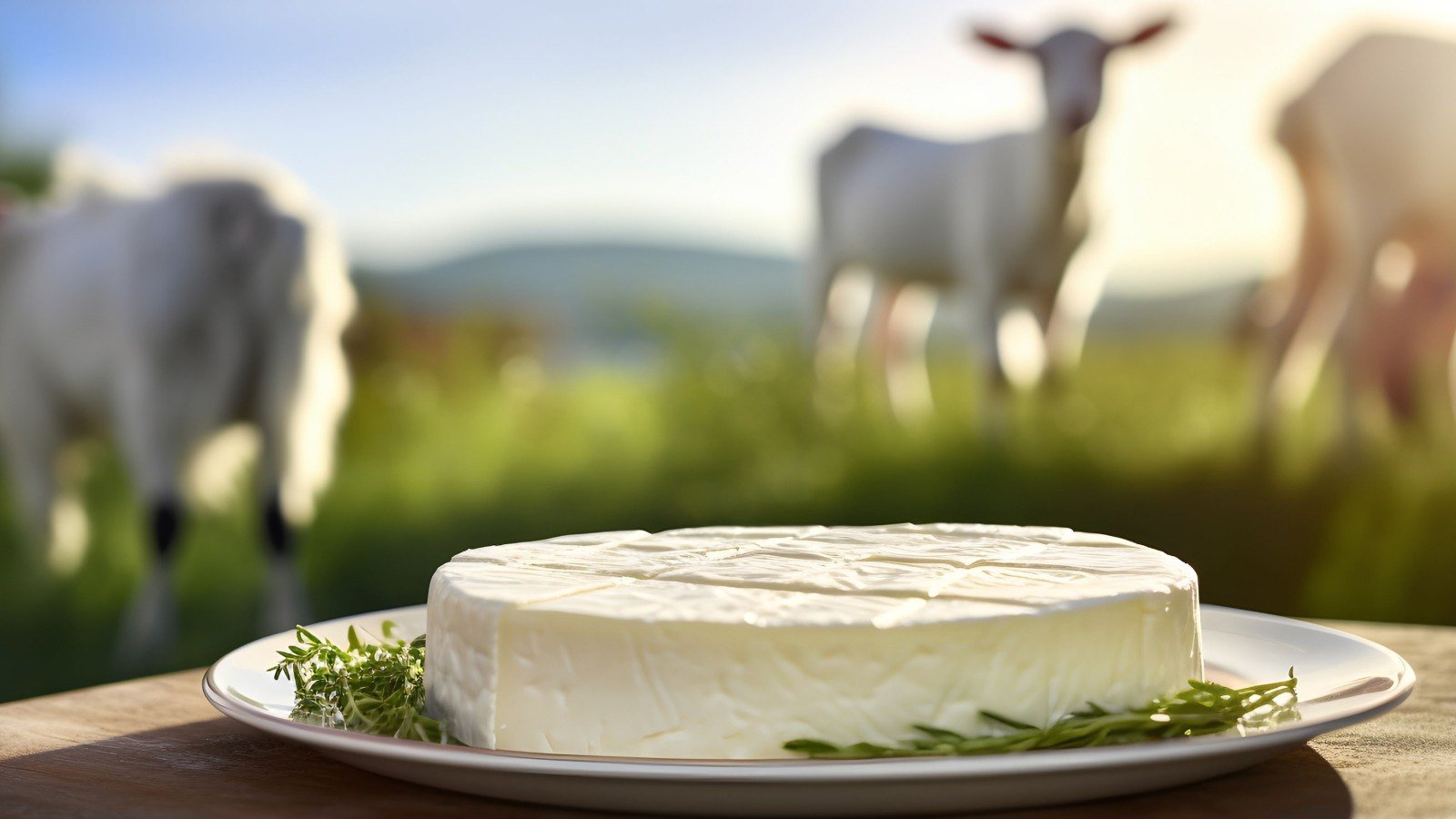If you are a cheese lover, you may be wondering which varieties are good for you. Try out goat cheese as it has many health benefits.
Cheese is one of the most nutritious dairy products that has effortlessly made its way to the most sophisticated delicacies around the world. Although the origin of cheese is unknown, it is believed that the Roman Empire was the first to use it, followed by Central Asia and the Middle East. There are additional important varieties of cheese, but the most well-known ones worldwide include mozzarella, cheddar, and parmesan. However, goat cheese has become the new talk of the town. Goat cheese has a softer, tangier flavour than cow’s cheese. It also has less lactose, vitamin D, and riboflavin, and is typically slightly higher in fats and minerals. Similar to cow’s cheese, it comes in various forms and variations based on the method used to process goat’s milk. In short, it is a nutritious food packed with the goodness of essential vitamins, minerals, and healthy fats that you must add to your diet. Here are the benefits of goat cheese you should know!
What is goat cheese?
Goat cheese, also known as chèvre, is a delightful cheese crafted from the milk of goats. It is made through a process similar to other types of cheese. The milk undergoes filtration to remove unwanted impurities or deposits. A curdling starter agent, which can be rennet or one or more starter bacteria, is added, influencing the curds’ size and, eventually, the cheese’s consistency. Some examples of starters include lactococcus lactis and streptococcus thermophilus. The cheese is then molded, separated from the whey (the uncurdled liquid part of the milk), and dried. The curds are further molded, flavoured, and cured. Variations in this process, such as the type of starter, draining time or pressure, and curing temperature and duration, can alter the texture (soft, semi-hard, hard) and flavour of the cheese.

What are the benefits of goat cheese?
Having it in your daily diet offers a myriad of benefits, says nutritionist Eti Jain. Here are all the health benefits of goat cheese that you must know:
1. Nutrient-rich: It is packed with essential nutrients, including high-quality proteins, calcium, and phosphorus, so it stands out as a nutritional powerhouse.
2. Aids weight loss: With lower calorie and fat content than traditional cow cheese, goat cheese becomes an ideal choice for weight management. The healthy fats, including medium-chain fatty acids, also enhance satiety, making you full for longer and helping you lose weight.
3. Supports bone health: Its rich B vitamin content supports energy metabolism, and the high calcium levels contribute to robust bone health. It is also a rich source of selenium, magnesium, and niacin (Vitamin B3), delivering 6 grams of crucial protein for healthy bones.
4. Good for overall health: The presence of bioactive compounds enhances its nutritional value, promoting overall well-being.
Beyond its delectable taste, goat cheese emerges as a nutritional superstar. One of the significant advantages of this cheese lies in its suitability for those who are lactose intolerant.
Is goat cheese healthier than cow cheese?
Goat cheese emerges as a healthier choice compared to cow cheese, thanks to its unique nutritional profile. Notably lower in calories and saturated fat, it’s a heart-friendly option. For those with lactose sensitivity or digestive issues, it is a game-changer due to its higher levels of medium-chain fatty acids, helpful for digestion.
Moreover, goat cheese is a lifeline for the lactose intolerant. The fermentation process in its making reduces lactose, making it easily digestible.
Select Topics of your interest and let us customize your feed.
“Packed with nutrients like fats, protein, calcium, magnesium, and potassium, it fights inflammation and offers healthy fats. Its nutritional content varies based on processing methods,” says Jain.
In one-ounce serving, soft-style goat cheese provides:
- Calories: 102
- Protein: 6 grams (g)
- Fat: 8 grams
- Vitamin A: 8% of the Recommended Dietary Intake (RDI)
- Riboflavin (Vitamin B2): 11% of the RDI
- Calcium: 8% of the RDI
- Phosphorus: 10% of the RDI
- Copper: 8% of the RDI
- Iron: 3% of the RDI
Further, choosing goat cheese over cow cheese presents a nutritional advantage. It contains fewer calories and saturated fat, making it a heart-healthy option. Whereas one ounce of hard cow cheese contains around 120 calories, 8g of protein, 6g of saturated fat, and 180mg of calcium. The higher levels of medium-chain fatty acids in it facilitate easier digestion, especially for those with lactose sensitivity or digestive challenges. Additionally, it offers essential nutrients like fats, protein, calcium, magnesium, and potassium, contributing to overall health benefits.

Are there any side effects of goat cheese?
While goat cheese is generally safe to eat, some individuals may experience bloating or mild digestive discomfort if taken in excess. It’s important to note that it contains A2 beta-casein proteins, which may be less allergenic than the A1 proteins found in cow milk. Monitoring your body’s response and consuming it in moderation can help mitigate any potential side effects.
Consulting with a healthcare professional or a nutritionist is advisable, especially for those with existing health concerns or dietary restrictions. This ensures personalised guidance on incorporating goat cheese into one’s diet while prioritising overall health and well-being.







